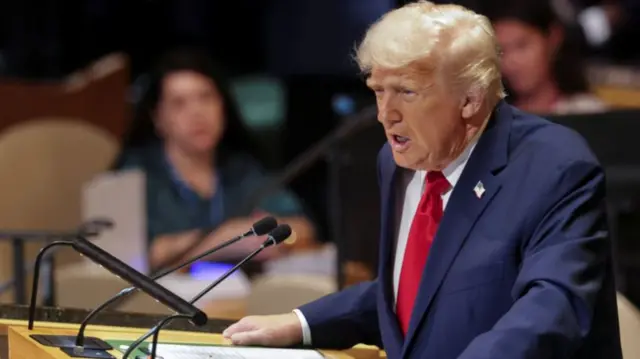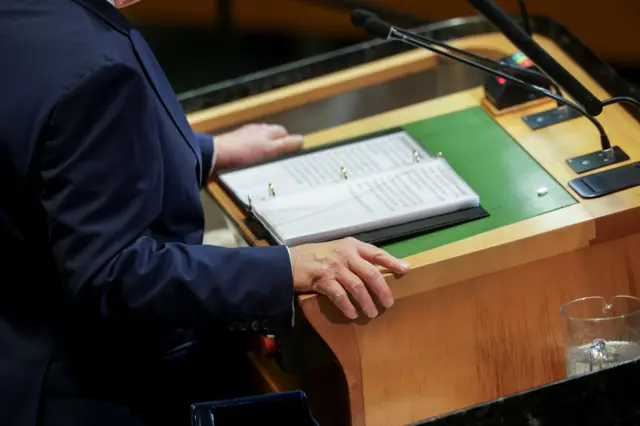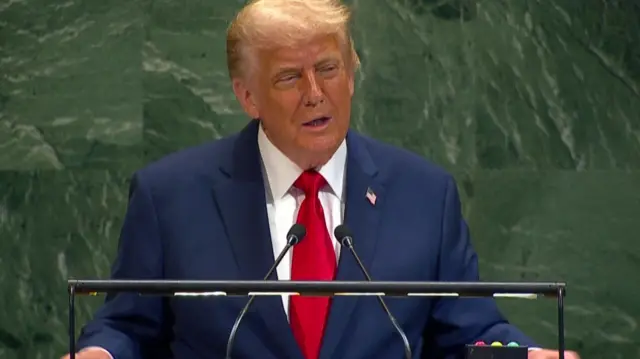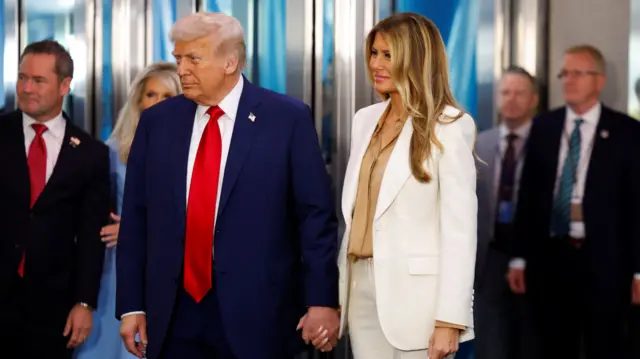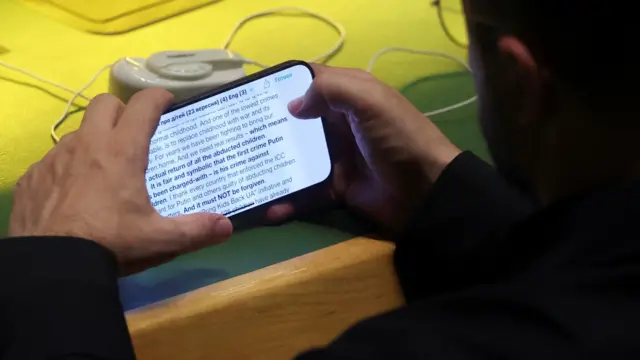Trump's frustration at the UN building reflects his wider complaintspublished at 15:37 BST 23 September
 Bernd Debusmann Jr
Bernd Debusmann Jr
Reporting from New York
Trump has long had gripes about the UN building, which he outlined just a few minutes ago in his speech.
In 2012, he famously said that the "cheap" tiles near the podium "bothered him".
At one point, he even offered to help renovate the building - which the global body rejected - prompting him to complain that the UN doesn't "know what it wants".
His more recent complaints - such as being stuck on an escalator - are, clearly, indicative of wider issues he has with the organisation.
The seating at the event is also indicative of a world that is very different than was the case even last year.
Sitting just two rows up from Marco Rubio and new UN ambassador Mike Waltz is Syrian President Ahmed Al Sharaa - a man once wanted by the US for ties to militant groups and whom some UN member countries still sanction.
Trump claims UN did not 'try to help' end global conflict
